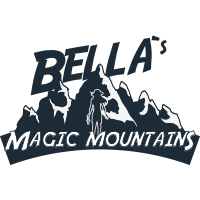1. Any recommendations on which high altitude trekking insurance to buy – that would include everything we need (heli evac + covid cover etc.)? (brand/company)
I recommend using Trailfinders or another travel insurance covering helicopter evacuation in Nepal up to 6000m. Last I checked, with Trailfinders, it was £102 for 15days with a £500 excess if you were to need to use the insurance.
2. What kind of bags/suitcases should we bring? Shall we have a smaller backpack for the day hikes, assuming the rest of our things (incl. sleeping bags/stuff we need overnight) will be carried by the porters (and those can be in the suitcases or duffel bags)?
You will need a day back pack (ideally with waist straps) to carry what you need for the days walk – a warm layer, water, sun cream, sun hat, gloves, warm hat.
For the porter to carry, you can have suitcase and we will arrange a duffle bag for you for the porter to carry the things you need for overnight. You will have 7.5kg each to be carried with a porter.
Ref sleeping bags, you can borrow from the company we work with on the ground if you do not have one, but they are not sanitized in between usages, so maybe a sleeping bag liner (cotton or silk) would be preferable.
3. What is the toilet situation along the trek and is there anything we should know? Is it worth investing in a urinal device for ladies, or not really required? 😀
All guesthouses have toilets – roughly every hour or two there is a Guest House in lower altitudes – as we get into the higher altitudes – toilets are squatting toilets in Guest Houses, and Guest Houses become less frequent – on the pass day there will be places to find privacy but no guest houses until close to the end. Best to be prepared for all hygiene conditions. The urinal device not needed.
4. How often will there be hot showers on the way?
Hot showers are in every Guest House until higher up where a hot water bucket can be arranged – additional fees for showers / hot water buckets are not included in the price – generally fees only apply in higher altitude Guest Houses. ($1-5 per hot shower / water bucket)
5. If I get my period during the trek, do you have any tips on how to prepare taking this into account? 🙂
I recommend having tampons and Tampax, hand sanitiser, bag to keep waste with you, and a small pack of wipes for when you need to find a private place away from the trail – all can be easily done and not something to worry about.
6. What is the drinking water situation? Shall we bring a reusable water bottle, not to use the plastic ones? What about the water purification tablets – would those be useful/necessary?
Best to have a bottle with a purifier/ filter incorporated. You can get some tablets in Kathmandu if you want, but chorine tablets are not good for our microbiome so I generally try and avoid taking them were possible. You can also buy safe drinking water / boiled water along the way or water bottles – but this contributes the the plastic problem in Nepal so I would advise against it.
7. It seems that the power plugs in Nepal are different from the UK/European ones. Is it easy to find an adaptor there, or shall we look for one before the trip?
Most of the plugs are either EU or UK types, so you will be fine. Best to bring an EU adaptor. Also, good to have a battery pack just in case (you should be able to charge phones each night for $1-2)
8. Do you recommend investing in any trekking and health devices, such as a GPS tracker, altimeter/altitude watch, oximeter etc.?
No, only if you want to for fun 😊
9. Trekking poles: are the folding ones better/worse than the non-folding ones? Do you have any recommendations? Is it worth bringing them from the UK?
Unless you have a good pair and will get frequent use from them – I recommend buying cheap ones out in Kathmandu.
10. Would it be helpful to bring hand/foot warmers from the UK, or is it easy to buy those locally?
Only if you want, easy to buy out in Nepal
11. What’s the mobile signal and wifi availability along the trek?
Most of the places we’ll be staying over night will provide wifi at a cost ($2), but the signal is relatively bad in the mountains for UK networks. You can get a local sim card from the airport if you want.
12. Do you have any specific vitamins/supplements you would recommend pre- and during the trek?
Omega 3, spirulina & magnesium
13. How much money will I need outside of what’s includes:
Good to have equivalent of £300 in Nepali cash – we will take you to a ATM in Kathmandu when you arrive. You could get away with spending less. You will need cash for any additional drinks in the mountains (eg. beer, mineral water, fizzy drinks, snacks, wifi, sometimes a shower charge, sometimes a phone charge) money for meals in the cities, entrance to cultural sites, additional activities and taxis, meals aren’t expensive but alcohol is charged closer to western prices, Nepal is a great place to buys gifts cheaply or enjoy a massage cheaply. We will all be giving tips to our local guide and our shared porter.

